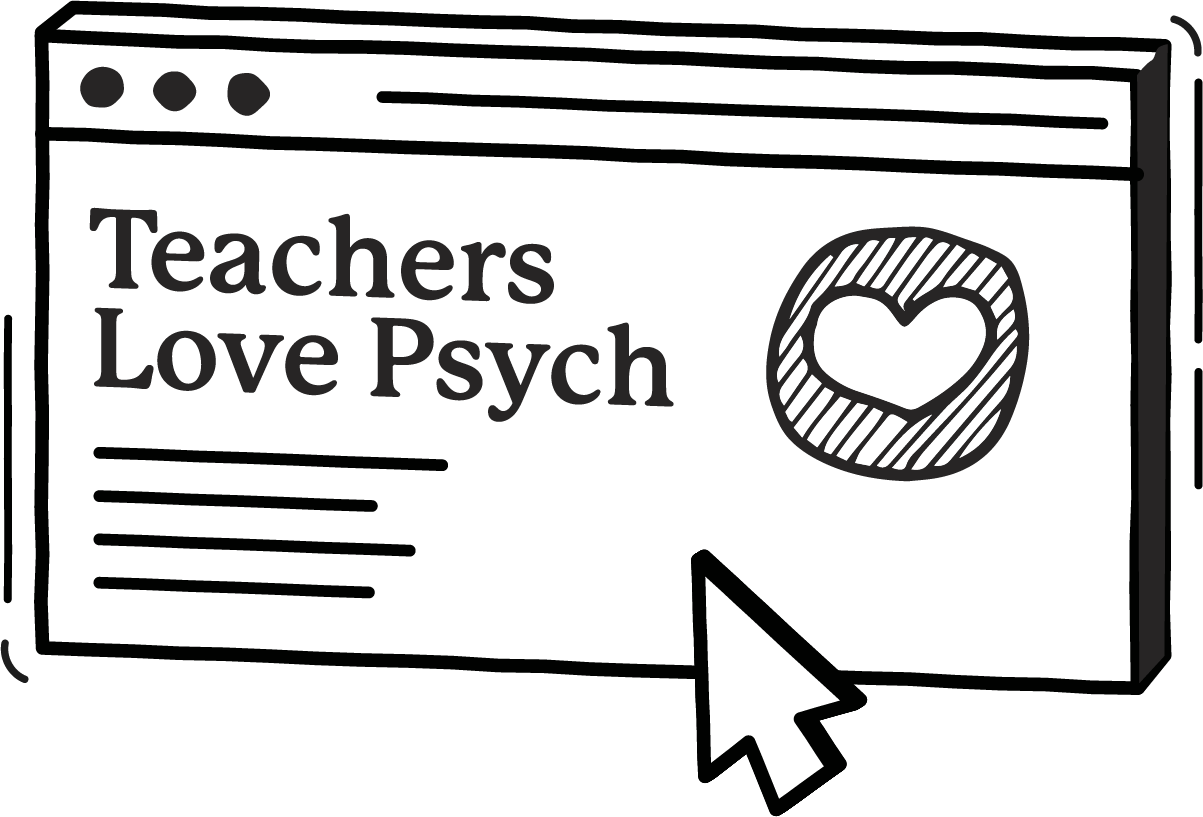Psychological Knowledge
is Critical to Education
Welcome to Teachers Love Psych! Our mission is to empower teachers to enact the most effective evidence-based teaching to help you and your students succeed.
This website is devoted to supporting teachers to engage with and use educational psychological research. For in classroom teachers, this website will help you to bring research directly into your classroom. For teachers in training, this website will help strengthen your knowledge of research and the resources can be useful tools for assessments. Here you will find resources that help you access, read, apply, and conduct research, both in educational psychology and beyond.

Why Research Matters?
Research Engagement Helps with Troubleshooting in the Classroom
Teachers face new challenges every day. Research literacy and experience provides you with the skills you need to solve problems and investigate issues in your classroom. Teachers who review and conduct their own research (e.g., action/design based research) help improve classroom instruction and student learning outcomes by:
• Focusing attention on issues, problems and areas of interest
• Providing opportunities for professional development and critical reflection
• Ensuring that curriculum, instruction and assessment are effective
• Informing policy change in schools
• Improving communications within and between schools
What Is Educational Psychology?
Educational Psychology is an area of study that seeks to improve understanding of students’ learning. Educational psychology draws on theories of human development, cognitive functioning, motivation and engagement, and social contexts, functioning, and relationships. Researchers in educational psychology focus on a range of topics that include, but are not limited to, memory, information processing, achievement, motivation, engagement, well-being, interpersonal relationships in the classroom, school belonging, self-beliefs, self-regulation, family dynamics, and learning experiences.
Learning is a complicated process and our goal as educational psychology researchers is to work in partnership with teachers to help students thrive.
Research Engagement Ensures that Teaching
is Evidence-Based
Teachers are expected to employ evidence-based practices. Engaging with and conducting your own research builds an awareness of relevant research in the field will help you to ensure that your classroom practice remains evidence-based, defensible, and effective. Understanding the research that informs your teaching practice is critical for communicating the effectiveness of your approach to parents, colleagues, and school leaders.
Developing reflection and inquiry skills
Reflective teaching practice is an essential part of continuing professional development. As teachers, we always want to reflect on what worked and what didn’t. Understanding and engaging with educational and psychological research can provide a useful framework for reflecting on your teaching and improving the effectiveness of your classroom practice. Research helps identify what works for whom, under what conditions, and when. Engaging with research can also spark curiosity in new practices and approaches. In this way, research can also provide insight about where to next.
It’s Fun!
Research literacy and engagement is a part of life-long learning. By engaging with research, you develop the skills and autonomy to answer teaching, learning, and education questions that spark your curiosity and passion.